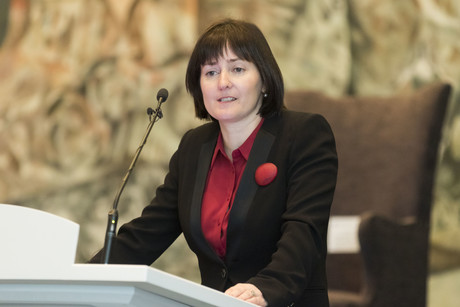Funding awarded to Australia's innovative medical researchers

The National Foundation for Medical Research and Innovation (NFMRI) has announced the winners of the Dr John Dixon Hughes Medal for Medical Research Innovation, as well as the foundation’s grant recipients for 2017.
Founded almost 40 years ago, the NFMRI’s primary objective is to support innovative areas of research to help benefit mankind through the prevention or eradication of diseases. As part of its 2017 awards ceremony, held last week, the foundation announced the researchers from across the country who will receive funding to support the advancement of their innovations.
The Dr John Dixon Hughes Medal, intended to celebrate the achievements of Australia’s biomedical research innovators, entails a $50,000 prize in the form of a research grant. The foundation’s research advisory committee this year made the decision to award two medals: one to Professor Mark Kendall, for the Vaxxas Nanopatch vaccine delivery system; and one to Associate Professor Michelle McIntosh (pictured), for an inhalable form of oxytocin to prevent postpartum haemorrhage in women from resource-poor settings.
“The nominations were simply of exceptionally high calibre, demonstrating the sector’s progress and improvement of innovation commercialisation,” said Dr Dixon Hughes, NFMRI’s longest-standing trustee.
Dr Jeffrey Hammond, director of science and research at the NSW Department of Primary Industries (DPI), meanwhile announced Professor Eric Gowans as the recipient of a new round of funding from a partnership between DPI and NFMRI to help develop and advance a vaccine for Zika virus.
“With 2016 proving to be a year of greatly increased numbers of mosquitos, which can transmit Zika virus, the successful project is well placed to develop a novel vaccine to prevent infection and spread of this virus in NSW and beyond, and provide DPI with a link to the world-class expertise in DNA vaccination that Professor Gowans’s team provides,” said Dr Hammond.
Other research grant recipients included:
- Professor Des Richardson, for a new therapy that will prevent the anaemia of chronic disease (ACD) — a severe cause of morbidity and mortality in millions of patients with cancer or inflammatory diseases.
- Dr Nicholas Opie, for the development of a device that converts thoughts into computer commands, thus bringing independence to patients affected by paralysis.
- Associate Professor Michelle Hill, for the development of a screening test to facilitate early detection of oesophageal cancer.
NFMRI CEO Dr Noel Chambers said the foundation was excited to be able to provide nearly $1.7 million in existing and new funding for research advancing medical innovations of tomorrow.
Vaxxas to advance its microarray patches for COVID vaccination
Vaxxas will receive AU$3.2m from BARDA to accelerate work advancing its high-density microarray...
Global competition targets 'undruggable' cancer protein
A new global competition offering over US$500,000 in prizes aims to spur drug discovery...
SMi Systems appoints Dr Ankur Mutreja as Senior Advisor
Mutreja was previously Head of Global South Partnerships at CEPI, where he was responsible for...




